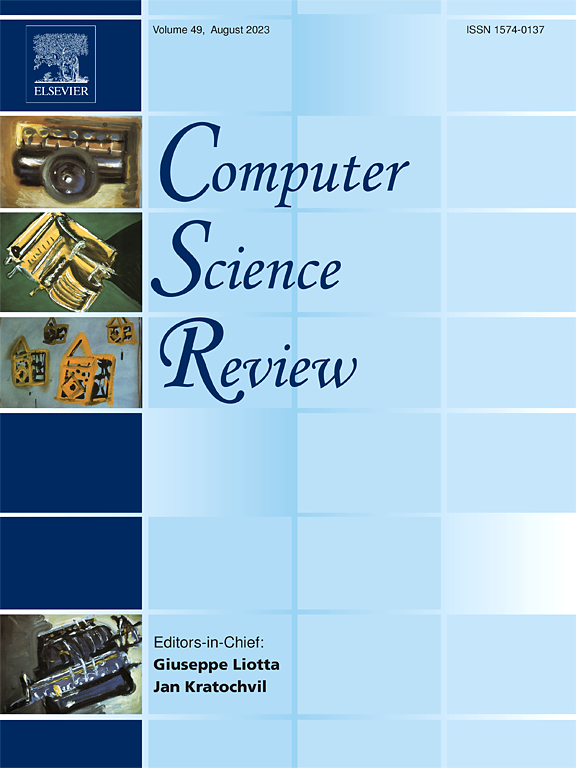Parameterized inapproximability: From Clique to PIH
IF 12.7
1区 计算机科学
Q1 COMPUTER SCIENCE, INFORMATION SYSTEMS
引用次数: 0
Abstract
Parameterized approximation, first proposed by Mike Fellows, approaches NP-hard problems by allowing the running time of an approximation algorithm to be superpolynomial in the parameter of an problem instance yet still polynomial in the size of the instance itself. One of the main open questions in the area is whether we can approximate the parameterized clique problem within some nontrivial ratio. It is also conjectured by Fellows that no such algorithms exist. In this article, we explain some recent progress on this question.
Similarly to the classical polynomial time inapproximability of the clique problem, the constraint satisfaction problem, i.e., CSP, plays a key role in most of the known inapproximability results of the parameterized clique problem. As a matter of fact, the parameterized inapproximability hypothesis, i.e., PIH, concerning the binary CSP has been long believed as a viable path towards the inapproximability of the parameterized clique problem. Although it turns out that those recent results do not rely on PIH, the method discovered for the parameterized clique problem leads to a proof of a version of PIH under the exponential time hypothesis, which we will also explain in this article.
参数化不可逼近性:从Clique到PIH
参数化近似,首先由Mike Fellows提出,通过允许近似算法的运行时间在问题实例的参数中是超多项式,而在实例本身的大小中仍然是多项式,来解决np困难问题。该领域的主要开放问题之一是我们能否在一些非平凡比中近似参数化团问题。研究员还推测,不存在这样的算法。在本文中,我们解释了在这个问题上的一些最新进展。与团问题的经典多项式时间不可逼近性类似,在大多数已知的参数化团问题的不可逼近性结果中,约束满足问题(即CSP)起着关键作用。事实上,关于二元CSP的参数化不可逼近性假设,即PIH,一直被认为是解决参数化团问题不可逼近性的可行途径。虽然这些最近的结果并不依赖于PIH,但为参数化团问题发现的方法导致了指数时间假设下PIH的一个版本的证明,我们也将在本文中解释。
本文章由计算机程序翻译,如有差异,请以英文原文为准。
求助全文
约1分钟内获得全文
求助全文
来源期刊

Computer Science Review
Computer Science-General Computer Science
CiteScore
32.70
自引率
0.00%
发文量
26
审稿时长
51 days
期刊介绍:
Computer Science Review, a publication dedicated to research surveys and expository overviews of open problems in computer science, targets a broad audience within the field seeking comprehensive insights into the latest developments. The journal welcomes articles from various fields as long as their content impacts the advancement of computer science. In particular, articles that review the application of well-known Computer Science methods to other areas are in scope only if these articles advance the fundamental understanding of those methods.
 求助内容:
求助内容: 应助结果提醒方式:
应助结果提醒方式:


